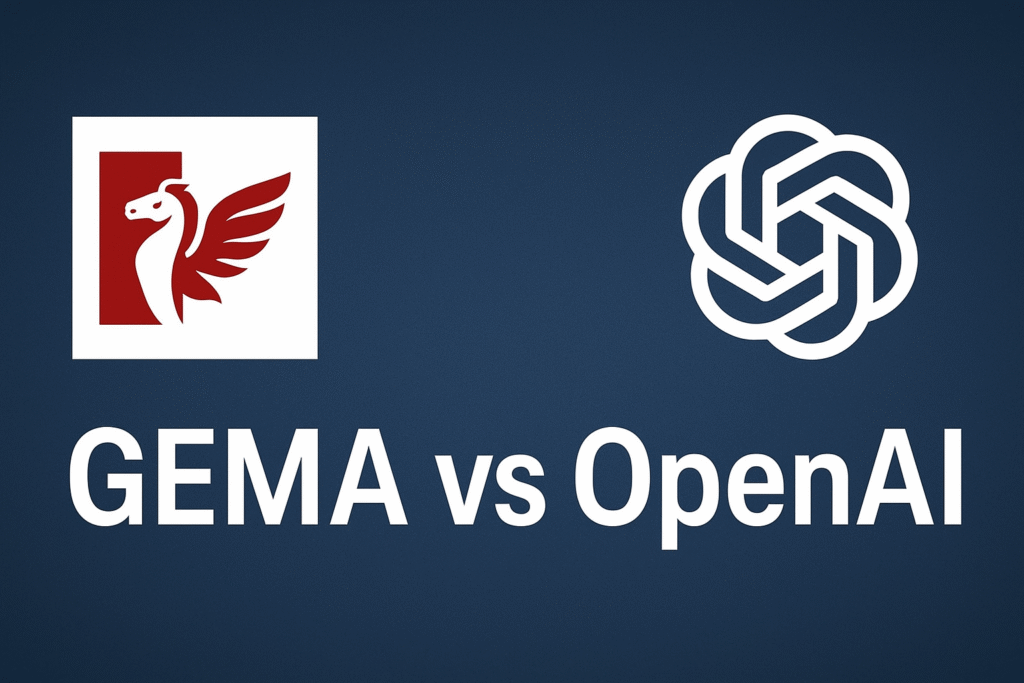In a decision that may redefine how generative AI engages with copyrighted works, the Regional Court of Munich I has ruled in favor of GEMA, Germany’s largest music rights organization, against OpenAI, finding that ChatGPT’s use of song lyrics without authorisation constitutes copyright infringement.
The case, first filed by GEMA in April 2024, accused OpenAI of allowing ChatGPT to reproduce protected lyrics verbatim, without obtaining a proper licence. After months of hearings and evidence submissions, the Munich court’s judgement on 11November, 2025 became the first in Europe to formally link AI-generated outputs to legal liability under copyright law.
The court found that OpenAI’s ChatGPT unlawfully reproduced protected song lyrics represented by GEMA. The court also went a step further, ordering OpenAI to pay a licence fee for such use, and rejecting its defense that generative models merely “predict” text rather than “reproduce” creative content.
This ruling sends a clear message: AI companies cannot claim technological neutrality when their systems distribute protected work.
When did it all start?
The case began in April 2024, when GEMA sued OpenAI after repeated instances where ChatGPT generated verbatim excerpts from copyrighted songs on user request , without licence, authorisation, or credit. GEMA accused OpenAI of profiting from creative works by using them both for model training and user interaction, all without engaging with established licensing systems. The company defended itself by claiming that ChatGPT does not “store” or “reproduce” works, but merely “predicts” text patterns based on probability.
The judgment
The Munich court dismantled that argument. It ruled that the method of generation is irrelevant when the outcome reproduces a protected work, making OpenAI directly liable for copyright infringement under German law. The judgment ordered OpenAI to pay a licence fee to GEMA, setting what the society called a Grundsatzurteil , a fundamental ruling with implications beyond national borders. For the first time, a court has explicitly linked AI-generated outputs to direct copyright liability, rather than focusing solely on the data used for training.
For GEMA, the decision represents more than a legal victory; it is a moral one. In its statement following the verdict, the society reaffirmed that its aim was not to hinder technological progress but to ensure fairness. GEMA CEO Dr. Tobias Holzmüller said in the press release that, “The internet is not a self-service store, and human creative work is not a free template. Today, we have set a precedent that protects and clarifies the rights of copyright holders: Even operators of AI tools like ChatGPT must comply with copyright law”. His words echo a sentiment increasingly shared across Europe, where regulators are growing wary of unlicensed data extraction by AI companies under the guise of innovation.
OpenAI has not yet issued a formal response but is widely expected to appeal.
IMPLICATIONS OF THE JUDGMENT
The ruling, however, lands at a particularly sensitive moment: the EU AI Act, set for full enforcement in 2026, already mandates transparency obligations regarding training data and copyright compliance. By treating AI-generated reproductions as actionable infringements, the Munich court has pre-emptively expanded the practical reach of those upcoming laws. For developers, the message is unmistakable: technical complexity cannot serve as a shield against ethical and legal accountability.
The implications of this judgment stretch far beyond Germany. Other European jurisdictions, including France and Italy, are currently assessing similar complaints about AI models reproducing artistic and literary content. Legal experts expect this case to act as a template, guiding how courts interpret the responsibilities of generative AI systems under existing copyright frameworks. Even outside the EU, policymakers in countries like Canada and Japan have been watching closely as debates over fair use, consent, and training transparency intensify.
Yet, at its core, the GEMA v. OpenAI judgment isn’t just about licensing or liability, it’s about redefining the social contract between human creators and the technologies that learn from them. It challenges the prevailing assumption that creative expression can be reduced to data and processed into derivative outputs free of moral or financial consequence. The Munich court has effectively stated what the law and ethics have long implied: innovation cannot exist in isolation from integrity.
CONCLUSION
For the AI ecosystem, this marks a turning point. The freewheeling era of “black-box creativity,” in which generative models could absorb and replicate human culture without accountability, may be coming to a close. If upheld on appeal, the ruling could inaugurate a new model of AI governance, one built on transparency, negotiated access, and respect for intellectual labour.
At JustAI, we view this as a decisive moment in aligning artificial intelligence with human values. The verdict does not stifle innovation; it anchors it. The Munich court’s message is unambiguous: the future of AI will not be defined by how much it can generate, but by how responsibly it can create.

